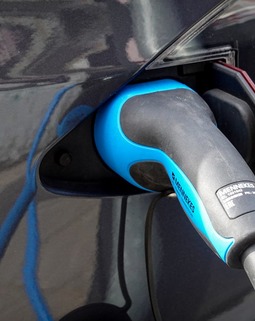Kenya is making bold strides in its quest for industrialization and sustainable development, securing a $620 million partnership with Japanese firms. This landmark collaboration focuses on establishing eco-energy solutions and car assembly plants, setting the stage for economic growth and environmental sustainability.
Kenya's Vision for Industrialization and Clean Energy
Kenya’s government has outlined ambitious goals under Vision 2030, emphasizing the importance of industrial growth and clean energy adoption. The $620 million agreements with Japanese firms underscore the country's determination to transform its manufacturing landscape while meeting global sustainability standards.
Details of the $620M Investment
The partnerships include two major components: eco-energy projects and the establishment of car assembly plants. These investments are expected to:
- Boost Local Manufacturing: The new assembly plants will reduce reliance on vehicle imports and increase the availability of affordable, locally assembled cars.
- Create Green Energy Solutions: Eco-energy initiatives will provide sustainable energy sources to support Kenya's growing industrial and urban sectors.
- Generate Employment: Thousands of direct and indirect job opportunities will be created in construction, operations, and supply chains.
- Enhance Technology Transfer: The deals will facilitate the transfer of advanced technologies, boosting Kenya's manufacturing capabilities.
Eco-Energy Projects
Japanese firms will implement clean energy solutions to power industries and communities. Key highlights include:
- Renewable Energy Plants: Projects will focus on harnessing solar, wind, and geothermal energy, complementing Kenya's existing renewable energy framework.
- Energy Storage Solutions: Advanced battery systems and grid optimization technologies will ensure energy reliability and efficiency.
Car Assembly Plants
The establishment of car assembly plants will be a game-changer for Kenya's automotive industry.
- Focus on Affordable Vehicles: Locally assembled vehicles, including eco-friendly options, will cater to the needs of Kenyan consumers and regional markets.
- Incorporation of Electric Vehicles (EVs): With global trends shifting towards EVs, the plants will incorporate electric and hybrid vehicle production, aligning Kenya with global automotive standards.
Strengthening the Economy
- Increased Revenue: The automotive and energy sectors will significantly contribute to Kenya’s GDP, boosting tax revenues and export potential.
- Industrial Growth: By enhancing local manufacturing capabilities, Kenya will reduce its trade deficit and strengthen its position as an industrial hub in East Africa.
Advancing Environmental Goals
- Lowering Carbon Footprints: The focus on renewable energy and EV production will reduce greenhouse gas emissions and combat climate change.
- Improved Air Quality: Eco-friendly vehicles will reduce reliance on fossil fuels, leading to cleaner air in urban areas.
Kenya's Strategic Position in East Africa
As the region’s economic powerhouse, Kenya is well-positioned to leverage these investments to expand its influence in East Africa. The agreements align with Kenya’s goal to become the gateway for trade and investment in the region.
- Access to Regional Markets: Locally assembled vehicles and clean energy solutions can be exported to neighboring countries, increasing Kenya’s economic footprint.
- Strengthening Infrastructure: Investments in energy and manufacturing will complement ongoing infrastructure projects like road networks and rail systems, facilitating smoother trade and logistics.
Challenges and Solutions
Infrastructure Deficits: Kenya must address gaps in infrastructure, such as inadequate electricity grids and transportation networks. Continued government support and private-sector partnerships will be critical in overcoming these challenges.
Skills Development: The success of these projects depends on a skilled workforce. Investments in vocational training and education programs will ensure that Kenyans can fully participate in and benefit from these initiatives.
Future Prospects and Sustainability
This $620 million partnership represents a pivotal moment in Kenya's industrial evolution. With a strong commitment to clean energy and local manufacturing, the country is poised for long-term growth.
- Sustainable Development: These initiatives align with Kenya’s commitment to the United Nations Sustainable Development Goals (SDGs), particularly in fostering industry, innovation, and clean energy.
- Global Competitiveness: By embracing modern technologies and practices, Kenya is positioning itself as a competitive player on the global stage, particularly in the automotive and energy sectors.
Conclusion
The $620 million deals between Kenya and Japanese firms signal a new era of industrial and environmental progress. By focusing on eco-energy and local vehicle assembly, Kenya is creating a blueprint for sustainable growth that will benefit its citizens and the wider region. With continued collaboration and strategic investments, the nation is on track to achieve its industrialization goals and establish itself as a leader in clean energy and manufacturing in Africa.





